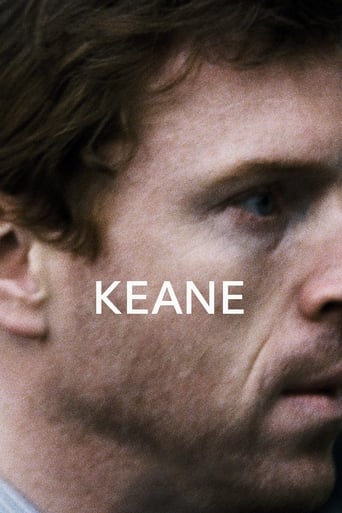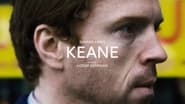anthonyjlangford
This will be remembered more for the period it was made rather than its content. It's hand-held cinema verite style in almost Dogma fashion is very much in that late nineties to mid 2000's vein. That's not necessarily a bad thing. The acting is top notch and the direction too and most of the elements are in place, even though it does feel like many others that came before it and since.The problem is in it's authenticity. The first act sets up a very damaged man. In the second he can apparently turn his illness off like a switch. Now many people can hide their problems, such as alcoholics, those with anger issues, but this doesn't border on the ridiculous, it is ridiculous. I'd love to hear from true sufferers such as the type revealed in the beginning of the film (very well portrayed by the way) but magically throws it out the window. I think it's an insult to genuine sufferers of mental illness.Still, the other characters are totally believable even if their actions are not always which seems such a shame because you do care about these people, especially when there's a child at stake. The ending simply annoyed and yet, again, slots right into that type of indie filmmaking typical of this period. It will ultimately be no different than looking back on film noir, early screwball comedy's, seventies horror or even eighties teenage flicks. A film entrenched in its style without fully extending beyond it. Which is a shame as so much of it is good, especially the primary performance.
secondtake
Keane (2004)This is a one man show all the way, and young, slightly crazed father played by Damian Lewis gives it his intense best. Almost nothing happens for 100 minutes, nothing in the sense of plot development, so it really is up to Lewis to make his troubles come alive. His problem is that his daughter disappeared when he was with her in a bus station, and a year later he is still looking for her, trying to recreated the events that surrounded the mystery.But what strikes the viewer is maybe impatience, not with the narrative, but with the presentation of it. The movie ends up being a recreation of the tortured mind, the angst, the regrets, of this young father. And so the movie recreates that anxiety in the viewer. It seems impressive on some detached level, but it doesn't quiet work. The shaky camera, the constant striving and looking, the endless lack of progress, makes for unpleasant viewing. That doesn't mean it isn't interesting, but it isn't enjoyable. Oddly enough, many movies about terrible things manage to rise above their terribleness and the movie becomes moving, or enlightening, or simply aesthetic. "Keane" doesn't try to do any of those things.It would help if Lewis were able to create a more sympathetic type. You do want him to succeed, but you also don't want to really spend an hour and a half with him like this. When a second character, a young woman, arrives halfway through, it seems like a crack in the gloom, but then she doesn't become a major character. Her daughter, gradually, does, but only in a symbolic way--we never quite get to know or sympathize with the daughter directly.This is all more analysis than criticism, really. But it's a heads up for people looking for a certain kind of emotional drama. A movie like "Julie" has a filmic richness that takes an even worse situation about a child and makes it gripping. "Keane" remains in the mind and emotional troubles of its main character, and in Lewis's hands that's not really enough.
jzappa
Naturalism is so effective because it gives us the urgency and reality of a documentary, but it captures what would be unfeasible between a real person and a camera but a few inches from his face. Lodge Kerrigan's Keane opens with a man scouring the Port Authority Bus Terminal, searching for his lost daughter. He has a newspaper clipping he shows to people, who hustle along, perceiving insanity. The girl has been missing for weeks or months. It's not clear-cut. This quest has been part of the day-to-day life of the titular man, who then departs into a coarse street grind: An entire bottle of beer at one swig, vodka, cocaine, hookers, careless sex.Keane, like Peter Winter, the central figure of Kerrigan's Clean, Shaven, is a schizophrenic in search of his daughter. But Winter has a daughter. Did Keane have a daughter, did she vanish, is she even real? There is a vast distinction between the two films, created by the insistence on Keane's longing to take up in the world. He admonishes himself about looking decent to go on his search. He goes shopping for clothes for the missing girl. His periods of disorientation and careless disregard fluctuate with periods when he is silent and attempts to soothe himself and concentrate. The constant exhilarating energy of the heart of New York City makes this difficult for a man in his condition.Keane is played by Damian Lewis. Here he embodies a border of delirium that Kerrigan grasps with a feral compassion. There is no cause for us to buy that Keane, or allegedly his daughter, would be more fortunate if he found her. The camera eyes him without remorse, and his performance compels us because he depicts not despondent insanity but his urge to break away from his malignancies. It is entirely possible he did have a daughter, and she was kidnapped. There is always that dreadful prospect, but the movie remains diffident because in Keane's state, confronting hard evidence would surely kill him, shock him back to life and kill him again. Nevertheless, his memories of the final moments before his daughter's vanishing seem too striking and lifelike to be anything but agonizingly real.In a fleabag boarding house, he comes across a woman named Lynn played by Amy Ryan and her 7-year-old daughter Kira, a younger Abigail Breslin. They're poverty-stricken. Her husband has left them, perhaps to find a job, possibly to get out. Keane collects disability checks, and gives Lynn money, which she lacks desperately enough to take, particularly because he is at a quiet, tender stage, and doesn't want anything for it, or at least not anything she might not be inclined to give. Lynn can't pick up Kira after school. Will Keane meet her, bring her home, and look after her for a few hours? He will. They go to McDonald's. They go ice-skating. This Keane might have made a nice dad. Which Keane is it? What will transpire? The tension evolves not out of the child's peril, if she is in any, as our immediate feelings tell us. But the more time that overdrawing has to erode, we find it comes out of Keane's despair about himself. He has been going through a peaceful phase. He is scared of the burden he has abruptly accepted. Does he somehow mistake Kira for his missing daughter?Kerrigan's films construct realms of individual engrossment. Characters on the brink pursue children they believe will endow them with much-needed contentment. The substance of Keane frees Kerrigan to burrow numerous formalistic capabilities with film that are scarcely seen in more mainstream cinema. And they are immensely effective. The film was shot with a hand-held camera with single takes lasting up to five minutes with no cutaways. It contains extensive periods of little to no dialogue and has no musical score except the sounds of place, of confusion, of buses roaring to and fro. We see mostly obscure, unfamiliar and remote city streets, marginalizing poor Keane. The film means to be a shakingly sensory experience, and is.
Sanou_san
I was staggered when I saw the film considering Damian Lewis and Abigail Breslin is in it. I got to read a lot of reviews about this independent film, where mostly they express this movie as wearisome at points and inconceivable at some points as well. But I beg to disagree with them, I mean it is one of the best independent movie I've ever seen, honestly! Everything went natural for all the characters, the settings, the scopes and people around were ample enough to describe this film as very simple but effectively genuine. Damian Lewis was certainly superb in playing his role as a schizophrenic father , Abigail Breslin as what I've read and heard was excellent as well! She certainly is stern, straightforward and professional towards her career (and I was convinced well with her talent watching her perform at 2006 "Little Miss Sunshine" which was also terrifically outstanding). In the film I admit it wasn't a very compellingly drama movie that would haul instantly viewers being pulled through the story. Admittedly I felt blends of anxiety, bliss, excitement, compassion and confusion towards the story and the characters (Especially William Keane played by Damian Lewis), and speaking of him, I was also astounded how he managed to play a character completely different (not that totally different) from some of his movies. He's a rare actor, and watching him strut his talents is a rare opportunity as well. His character even scared me during the film on what would be his plans for Kira (Abigail Breslin) whom she learned to love throughout. His behavior and attitude as well is unpredictable. At the first 30 minutes of the film, you would see him struggling with his sickness like talking, whispering, deciding all by himself. Then when meeting Kira and Lynn (her mother played by Amy Ryan) his soft, gentle and fatherly figure came to surface and just glide smoothly throughout the film. My heart was moved, though the movie is not that unthinkably striking, but I absolutely loved the story. Even though at the ending, it seems short, but I guess anyone would already predict what would be the conclusion, it went fine. The very small thing that lacks in the movie was the sound effects, or background musics. The opening doesn't even have one, and even the final credits. However doesn't really matter, specifically for a low-budgeted independent film shot for only 32 days, how cool is that?





